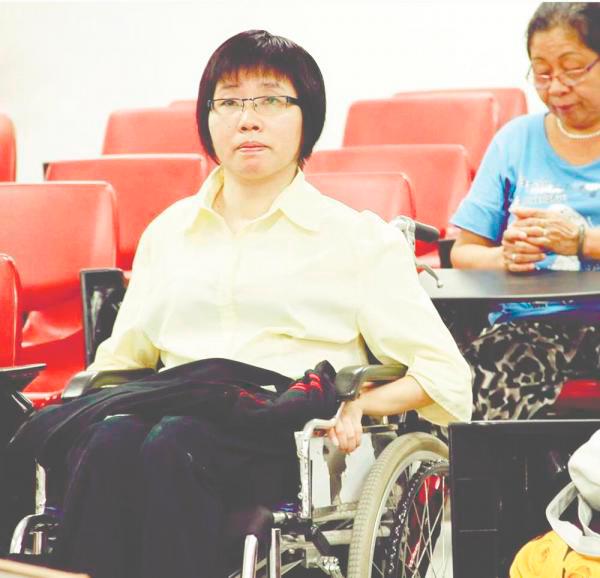IMAGINE a world where everyday tasks feel like climbing a mountain. For many Malaysians with disabilities, this is not just a thought experiment – it is daily life.
They face not just physical barriers but also the daunting walls of discrimination and prejudice. Every day, the world tells them it was not designed with them in mind.
However, recent developments signal a beacon of hope. The government’s announcement to review the Persons with Disabilities Act 2008 hints at a promising shift towards inclusivity. It is spearheaded by the Women, Family and Community Development Ministry and the National Council for Persons with Disabilities.
The drive to strengthen employment rights and create equal opportunities for people with disabilities is not just commendable, it is crucial. It represents a broader commitment to enhancing the socioeconomic inclusion of the disabled community, with a promise of better days.
While the Act sets a promising groundwork for safeguarding disability rights, its effectiveness is undercut by the absence of robust enforcement mechanisms.
What is needed is a steadfast commitment to rigorous policy implementation, transforming promises into tangible protections.
Without stringent enforcement, the lofty goals of the legislation may remain elusive, leaving individuals with disabilities susceptible to discrimination and neglect.
In the sphere of employment, the consequences of lax policy implementation are especially pronounced for individuals with disabilities. Despite the hopeful framework in the current legislation, the practical landscape often exposes a jarring disparity between rhetoric and action.
Take the case of Khu Li Huang, a wheelchair user with impressive academic credentials who faced discriminatory hiring practices. Sadly, her story is not unique, reflecting a broader issue beyond employment. The stereotypes and prejudices she battles are entrenched, shaping the lives of many with disabilities in our nation.
This incident is a reminder that public and private sectors must prioritise inclusivity and accessibility. This entails embracing inclusive hiring practices, ensuring physical accessibility in workplaces and offering vital support to enable employees with disabilities to thrive in their positions.
The civil service still falls short of fulfilling its commitment to allocate 1% of its jobs to individuals with disabilities. To remedy this, the government can bolster recruitment initiatives tailored to individuals with disabilities, offer essential training and support for their seamless integration into the workforce and cultivate a culture of inclusivity across agencies.
Equally crucial is the private sector’s role in implementing policies that champion diversity and support individuals with disabilities, encompassing accessible hiring practices and nurturing work environments.
Additionally, the glaring lack of adequate access to quality education and vocational training serves as a catalyst, intensifying the gaping chasm of inequality. This insufficiency impedes the aspirations of individuals with disabilities, hindering their ability to attain the requisite skills and qualifications indispensable for navigating the fiercely competitive job arena.
Yet, this commitment transcends the workplace, emphasising the necessity for tailored policies across various facets of life to ensure societal inclusion.
Consider schools in developed nations where infrastructure, such as ramps and lifts, are commonplace to accommodate diverse needs. This dedication also resonates in public transportation and housing sectors, where features like wheelchair ramps on buses and disabled-friendly apartments are indispensable.
Such policies foster individual independence and contribute to a more inclusive societal fabric. Their importance underscores the pressing need for broader adoption of similar infrastructure and regulations.
Our attention was also recently drawn to a special needs centre struggling financially to provide essential services such as speech therapy and physiotherapy. This centre, reliant on public donations and reeling from the impacts of Covid-19, highlights the broader challenges of accessibility and support within our community.
Disability care centres face a multitude of challenges beyond just financial strain. Scarce resources, including trained staff, specialised equipment and therapeutic resources, hinder their ability to provide essential services to individuals with disabilities.
Operating with minimal staff and outdated facilities, these centres grapple with meeting the complex and diverse needs of those under their care.
To surmount these challenges, we must rally concerted efforts to tackle systemic issues, bolster regulatory frameworks and foster stakeholder collaboration.
By prioritising capacity-building initiatives and forging partnerships across sectors, we can empower disability care centres to offer comprehensive, top-tier services that champion the well-being and inclusion of individuals with disabilities.
However, the fundamental transformation begins with education. Teaching children from a young age about diversity and inclusion sets the stage for a future where diversity is seen as a strength, not a hindrance.
As we look to the future, we must remember that real progress is not just about policy updates or legislative changes. It is measured by our everyday actions to support and uplift those around us.
We make strides towards truly inclusive growth by fostering a society that values every individual’s contribution.
Datin Sri Umayal Eswaran is the chairperson of the RYTHM Foundation, which established the Taarana School for children with special educational needs.
Comments: letters@thesundaily.com









